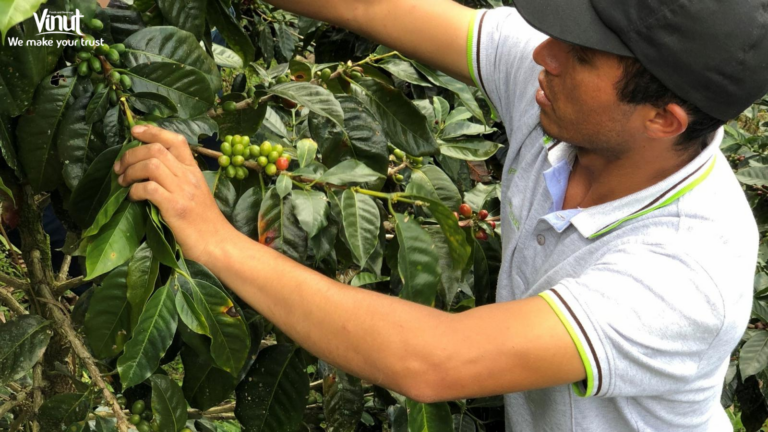Discover the Origins, Benefits, and Best Deals on Arabica Coffee Beans

Table of Contents
ToggleCoffee is more than just a beverage; it's a global phenomenon, a morning ritual, and for many, a passion. Among the myriad of coffee varieties, Arabica coffee bean stand out for their exceptional quality and taste. In this comprehensive guide, we will embark on a journey through the origins, benefits, and how to find the best deals on Arabica coffee bean.
1. The Historic Roots of Arabica Coffee
The story of Arabica coffee begins in the ancient coffee forests of Ethiopia. According to popular legend, it was discovered by a goat herder named Kaldi, who noticed his goats became energetic after eating the red cherries from a coffee plant. Arabica coffee is believed to be the first species of coffee to be cultivated, and its cultivation and consumption soon spread throughout the Arabian Peninsula.
The name ‘Arabica’ itself originates from the coffee’s popularity in 7th-century Arabia. By the 15th century, it had reached the rest of the Middle East, Persia, Turkey, and northern Africa. Today, Arabica coffee is grown in various parts of the world, including Latin America, Southeast Asia, and Africa.

2. Understanding Arabica Coffee Bean
Arabica beans are known for their mild, aromatic taste and contain less caffeine than other coffee species, like Robusta. These beans are grown at high altitudes in tropical climates, particularly in areas with abundant rain and shaded sun. The beans are oval in shape with a curved crease.
3. The Unique Flavor Profile of Arabica
Arabica coffee is celebrated for its delicate, nuanced flavors and aromas. It typically exhibits a smoother, sweeter taste with hints of chocolate, nuts, caramel, and fruits. The acidity of Arabica coffee is higher, lending a brightness to its flavor that is often described as a slight winey taste.
4. Health Benefits of Arabica Coffee
Arabica coffee is not just a treat for your taste buds; it also offers several health benefits. It is rich in antioxidants, such as chlorogenic acid, which can reduce inflammation and lower the risk of diseases including heart disease and type 2 diabetes. The moderate caffeine content in Arabica can improve mental alertness and concentration.
5. How to Choose the Best Arabica Bean

When shopping for Arabica coffee beans, consider the bean’s origin, roast, and freshness. Single-origin coffee from specific regions can offer unique flavor profiles. The roast level, from light to dark, also affects the taste. Light roasts typically have higher acidity and retain more of the bean’s original flavor, while dark roasts have a fuller body and richer flavor.
6. Where to Find the Best Deals
Finding high-quality
Arabica coffee beans at a great price can be a delightful adventure. Many local coffee roasters and specialty stores offer a range of Arabica beans. Online coffee retailers and marketplaces are also great sources, often providing detailed descriptions of the flavor profiles and origins of their beans. Look out for subscription services or bulk purchases to enjoy better deals.
7. Storing Arabica Coffee Bean
To preserve the freshness and flavor of Arabica coffee beans, proper storage is crucial. Store them in an airtight container away from direct sunlight and moisture. It’s best to buy beans in smaller quantities to ensure they’re used when at their peak of freshness.

8. Brewing the Perfect Cup
The brewing method significantly affects the taste of your Arabica coffee. Popular methods include the French press, pour-over, and espresso. Each method extracts different flavors and aromas from the beans. Experimenting with grind size, water temperature, and brewing time can help you find your ideal cup.
9. Arabica Beans in Specialty Coffee Culture
Arabica beans are the heart of the specialty coffee movement, with baristas and enthusiasts exploring diverse varieties and innovative brewing techniques. These beans are often used in competitions and are favored for creating artisanal coffee experiences.
10. Sustainable and Ethical Considerations
As a coffee lover, it’s important to consider the sustainability and ethical sourcing of Arabica beans. Look for certifications like Fair Trade and Rainforest Alliance, which ensure that the coffee is grown and harvested under fair and eco-friendly conditions.

11. Conclusion
Arabica coffee beans offer a world of flavors and experiences for coffee enthusiasts. Understanding their origins, benefits, and how to choose and brew them can elevate your coffee experience. Whether you’re a seasoned coffee aficionado or a curious newbie, exploring the world of Arabica coffee beans is an enriching journey that goes beyond the cup, connecting you with diverse cultures and traditions across the globe.
We invite you to experience the delightful flavors and refreshing experience that Vinut offers. Come to discover your favorite beverage, and be a part of a tropical journey that promises both taste and health.

